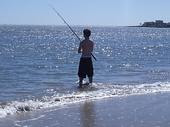
On a scale of 1-10 (10 being the greastest)
CULTURAL: 8
Fredrick's people really liked Fredrick. They called him and "Enlightened Monarch" and were happy to finally have a leader who was aware of it's people's needs and lives. He also composed many musical pieces and was well educated in music.
EDUCATIONAL: 9
Fredrick was educated very well in both military and music. Both his music skills and his military skills are incredible, proving that his education in those areas worked very well. Though ataining that education was tough due to his father's brutal tactics of keeping Fredrick's focus, he made it through and used his education to better Prussia and it's people.
LEGAL: 8
Fredrick spread religious freedom and he gave the press much for freedom. He also established more respect for the law. Fredrick still managed to keep control in Prussia after all of these reforms, showing that was able to balance power between him and his people very well.
POLITICAL:7
Fredrick had a bureaucracy and his government was very loyal to him. Though politicaly he didn't make much of an impact, Fredrick brought respect to his role as a monarch and was able to keep his people pleased with how he ran Prussia.
MILITARY: 10
Fredrick had great military skill and lead Prussia through three major wars, the Seven Years' War being the greatest. Prussia came out stronger then when it went in under Fredrick's control and Prussia's and and territory nearly doubled in size.


